
William Edward Burghardt Du Bois was an American sociologist, socialist, historian, and Pan-Africanist civil rights activist. Born in Great Barrington, Massachusetts, Du Bois grew up in a relatively tolerant and integrated community. After completing graduate work at the Friedrich Wilhelm University and Harvard University, where he was the first African American to earn a doctorate, he became a professor of history, sociology, and economics at Atlanta University. Du Bois was one of the founders of the National Association for the Advancement of Colored People (NAACP) in 1909.

Black studies, or Africana studies, is an interdisciplinary academic field that primarily focuses on the study of the history, culture, and politics of the peoples of the African diaspora and Africa. The field includes scholars of African-American, Afro-Canadian, Afro-Caribbean, Afro-Latino, Afro-European, Afro-Asian, African Australian, and African literature, history, politics, and religion as well as those from disciplines, such as sociology, anthropology, cultural studies, psychology, education, and many other disciplines within the humanities and social sciences. The field also uses various types of research methods.
The African American National Biography Project is a joint project of the Hutchins Center for African & African American Research at Harvard University and Oxford University Press. The object of the project is to publish and maintain a database of African Americans similar in scope to the American National Biography.

Arturo Alfonso Schomburg, was a historian, writer, collector, and activist. Schomburg was a Puerto Rican of African and German descent. He moved to the United States in 1891, where he researched and raised awareness of the contributions that Afro-Latin Americans and African Americans have made to society. He was an important intellectual figure in the Harlem Renaissance. Over the years, he collected literature, art, slave narratives, and other materials of African history, which were purchased to become the basis of the Schomburg Center for Research in Black Culture, named in his honor, at the New York Public Library (NYPL) branch in Harlem.

Shirley Graham Du Bois was an American-Ghanaian writer, playwright, composer, and activist for African-American causes, among others. She won the Messner and the Anisfield-Wolf prizes for her works.
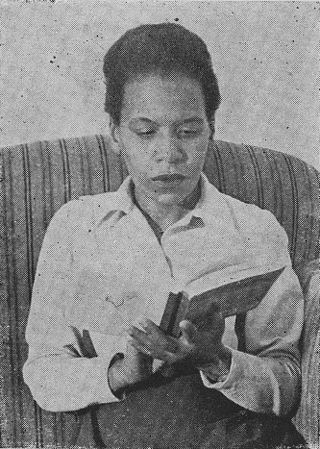
Virginia Brindis de Salas was a poet of the black community of Uruguay. The country's leading black woman poet, she is also considered "the most militant among Afro-Uruguayan writers". Her poetry addresses the social reality of Black Uruguayans. Little is known about her life; according to Joy Elizondo, she claimed to be the niece of Cuban violinist Claudio Brindis de Salas, though this is unsubstantiated.
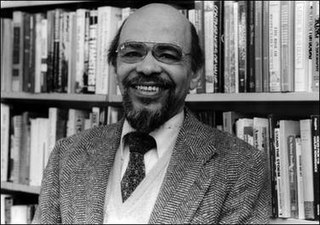
Nathan Irvin Huggins was a distinguished American historian, author and educator. As a leading scholar in the field of African American studies, he was W. E. B. Du Bois Professor of History and of Afro-American Studies at Harvard University as well as director of the W. E. B. Du Bois Institute for Afro-American Research. He died in Cambridge, Massachusetts, aged 62.
Lawrence Henry Yaw Ofosu-Appiah was a Ghanaian academic who taught classics at the University of Ghana and was subsequently Director of the Encyclopedia Africana.

The All-African People's Revolutionary Party (A-APRP) is a socialist political party founded by Kwame Nkrumah and organized in Conakry, Guinea in 1968. The party expanded to the United States in 1972 and claims to have recruited members from 33 countries. According to the party, global membership in the party is "in the hundreds".
Afrocentric education refers to a pedagogical approach to education designed to empower people of the African diaspora with educational modes in contact and in line with the cultural assumptions common in their communities. A central premise behind it is that many Africans have been subjugated by having their awareness of themselves limited and by being indoctrinated with ideas that work against them and their cultures.

The Exhibit of American Negroes was a sociological display within the Palace of Social Economy at the 1900 World's Fair in Paris. The exhibit was a joint effort between Daniel Murray, the Assistant Librarian of Congress, Thomas J. Calloway, a lawyer and the primary organizer of the exhibit, and W. E. B. Du Bois. The goal of the exhibition was to demonstrate progress and commemorate the lives of African Americans at the turn of the century.
The American Negro Academy (ANA), founded in Washington, DC in 1897, was the first organization in the United States to support African-American academic scholarship. It operated until 1928, and encouraged African Americans to undertake classical academic studies and liberal arts.
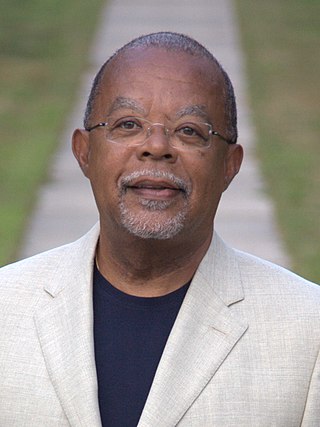
Henry Louis "Skip" Gates Jr. is an American literary critic, professor, historian, and filmmaker who serves as the Alphonse Fletcher University Professor and the director of the Hutchins Center for African and African American Research at Harvard University. He is a trustee of the Gilder Lehrman Institute of American History. He rediscovered the earliest known African-American novels and has published extensively on the recognition of African-American literature as part of the Western canon.
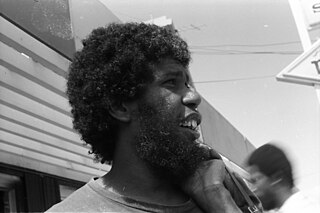
Kofi Kayiga, formerly known as Ricardo Wilkins, is a Jamaican-born artist and educator, who migrated to the US, after periods spent in the UK and Uganda. He has exhibited widely internationally and since the 1960s has taught fine art at various institutions, becoming a professor at the Massachusetts College of Art and Design (MassArt).

Cornelius Marion Battey was an American photographer who shot photographic portraits of black Americans in a pictorialist style. His photograph of black leaders appeared on the cover of the NAACP's magazine The Crisis beginning in the 1910s. He later founded and headed up the photography department at the Tuskegee Institute.

Marfa Inofuentes Pérez (1969–2015) was an Afro-Bolivian activist involved in the Constitutional reform movement to recognize black Bolivians as an ethnic minority in the country. After achieving the goal for Afro-Bolivians to be protected under the law, she served as the head the Ministry of Gender and was appointed deputy mayor of the Peripheral Macrodistrict of the Municipality of La Paz.
Horacio Mendizábal (1847–1871) was an Argentine poet, translator and activist.
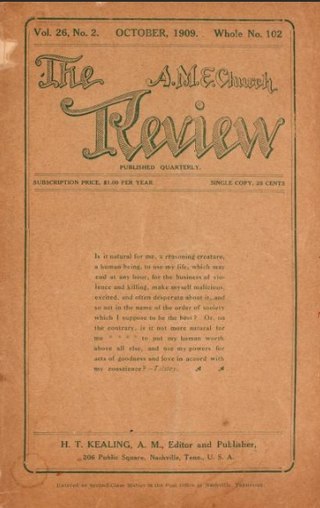
The A.M.E. Church Review is the journal of the African Methodist Episcopal Church. Established in 1841 and revived in 1884, it is arguably the earliest published African-American journal. It publishes articles on religion, politics, history, and world events.

The Dictionary of African Biography is a six-volume biographical dictionary, published by Oxford University Press. Published in 2012, the editors-in-chief are Emmanuel K. Akyeampong and Henry Louis Gates, Jr., both of the W. E. B. Du Bois Institute of Harvard University.
The Hutchins Center for African and African American Research, also known as the Hutchins Center, is affiliated with Harvard University. The Center supports scholarly research on the history and culture of people of African descent around the world, facilitates collaboration and aims to increase public awareness of the subject. It was established as the W. E. B. Du Bois Research Institute in May 1975, making it the oldest research center focused on the study of the history, culture, and society of Africans and African Americans, with the rebranding as the Hutchins Center occurring in 2013.














